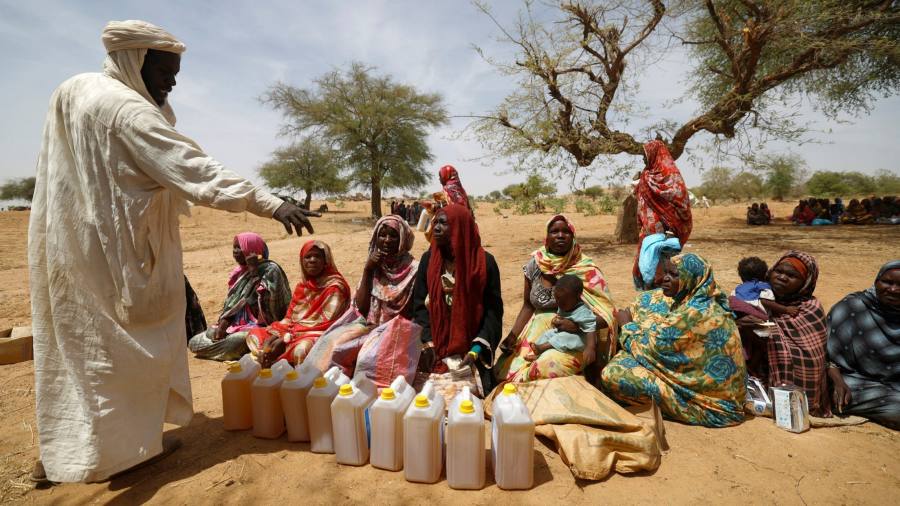The US government has voiced cautious hope that emissaries of Sudan’s warring generals who have been meeting this week in Saudi Arabia will renew efforts to put in place a ceasefire to allow humanitarian aid to get into the country.
The envoys have been meeting in the city of Jeddah since Sunday as part of attempts to ease tensions in a conflict that has pitted de facto president and army chief General Abdel Fattah al-Burhan against the paramilitary Rapid Support Forces of General Mohamed Hamdan Dagalo, known as Hemeti.
The meetings, brokered by Washington and Riyadh, are the first tangible effort to try to tame the fighting which has spurred an exodus of more than 150,000 refugees since it began last month and has left at least 604 people dead, with the UN acknowledging the real figure may be much higher.
“Our goal for these talks has been very narrowly focused,” Victoria Nuland, US under-secretary of state, told a US senate committee, “first securing agreement on a declaration of humanitarian principles and then getting a ceasefire that is long enough to facilitate the steady delivery of badly needed services.”
The Jeddah discussions have been limited to a ceasefire and humanitarian issues such as safe passage to avoid political issues. Burhan and Hemeti have agreed to ceasefires in recent weeks, though residents of Khartoum who have witnessed continued fighting say troops ignore them.
“If this stage is successful, and I talked to our negotiators this morning who are cautiously optimistic, it would then enable expanded talks,” said Nuland, adding that they could pave the way for a “permanent cessation of hostilities”.
Both sides have accused each other of breaching truces in recent weeks. The RSF said this week that Sudanese forces had launched air raids. The army, in turn, said the RSF had “looted” foreign embassies, delegations and banks.
US secretary of state Antony Blinken said this week that he was “pressing the warring parties in Sudan to put down their guns and allow life-saving aid to reach the Sudanese people”.
But many Sudanese are sceptical about the talks amid little signs of a compromise. “The US-Saudi initiative that delivered the talks . . . may have been founded on good intentions, but it is riddled with deficiencies and defects that render it absurd,” said Amjed Farid, who was an adviser to Abdalla Hamdok, the prime minister deposed by Burhan and Hemeti in a coup in 2021.
“The US and Saudi Arabia have proclaimed six times since the outbreak of fighting between the Sudanese army and the RSF that a humanitarian cessation of hostilities has been reached,” he said. “However, after each announcement, the battling between the warring parties immediately escalates, indicating that these efforts have little influence or capacity in the real world.”
He added the low-level delegation sent to Jeddah by both sides showed “that neither is honestly interested in a fruitful outcome”.
Burhan told a state-affiliated Egyptian news outlet this week that he had thanked the US and Saudi Arabia for their efforts but said the RSF “must get out” of the capital “before we talk about any ceasefire”. He added his side “would not talk about any political issues” for now.
Hemeti said he welcomed “all regional and international efforts to establish a ceasefire, open humanitarian corridors”.
The UN humanitarian chief Martin Griffith has said more than 700,000 people have been displaced in Sudan. “It’s a race against time to provide life-saving assistance to those on need,” he said. “The fighting needs to stop now.”
Read the full article here
